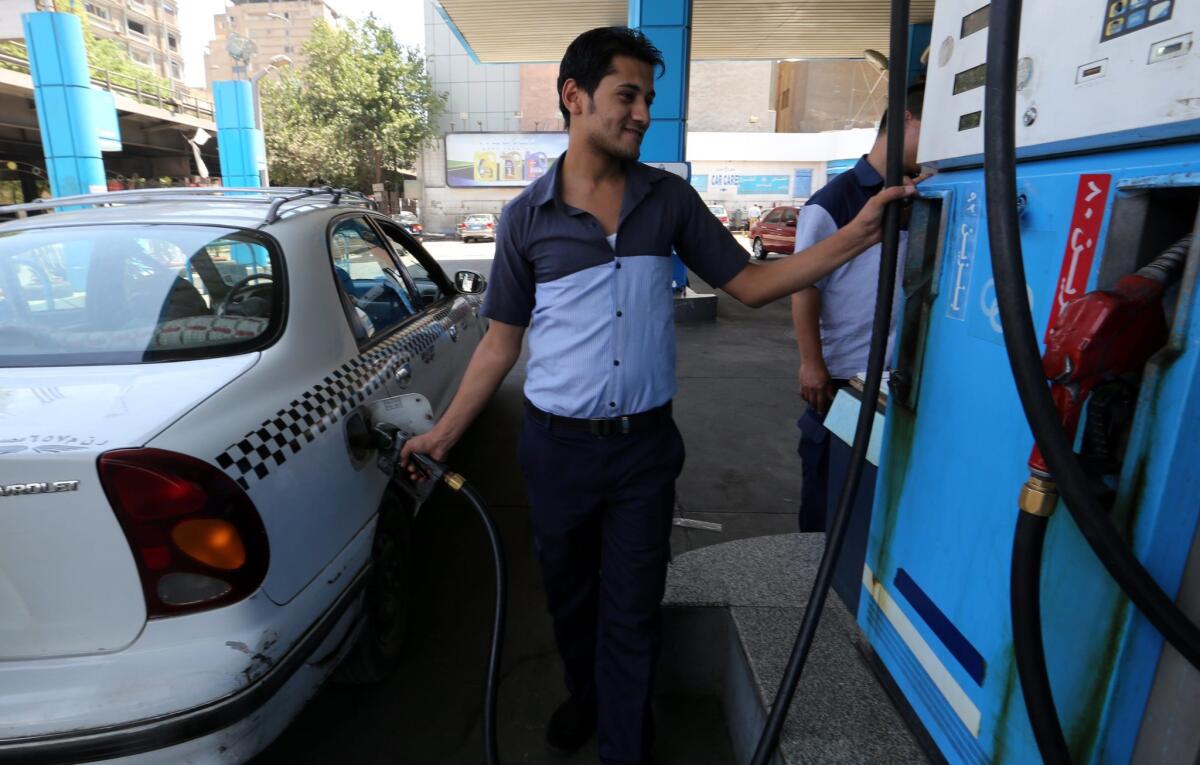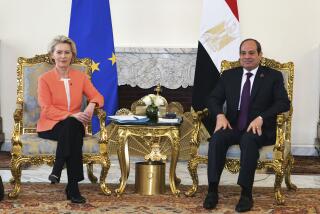Egypt fuel prices soar up to 70%, exasperating the public

- Share via
Reporting from Cairo — The Egyptian government trimmed its energy subsidies Saturday, causing fuel prices to soar and motorists to stew.
The cabinet’s cuts increased prices Saturday for gas and diesel, in some cases by almost 70%. The action was part of a package of austerity measures taken by President Abdel Fattah Sisi’s administration to abolish energy subsidies that cost Egypt around $24 billion annually.
Although the subsidy cut was anticipated, many were left disillusioned by the unprecedented hike -- with private transportation drivers the first to be hit hard.
“This is the highest increase in fuel prices that I’ve seen in over 36 years,” Kamal El Shazli, a bus driver working in eastern Cairo, said. “We were told that everything will prosper once Sisi gets elected, and now we see this [hike] in his first few weeks as a president; He [Sisi] is accelerating [mobilization] for a third revolution.”
Three years of political turmoil have followed the 2011 revolution that ousted longtime autocrat Hosni Mubarak and Egypt’s already sputtering economy has been left in shambles. Sisi last week approved a revised budget with a deficit of $33.57 billion.
Consumers now fear the fuel price increase will result in higher prices for many other commodities. On Saturday, the head of Egypt’s Consumer Protection Assn., Zeinab Awadallah, strongly condemned the cabinet’s new measures, adding that the decision will lead to at least a “200% increase in prices of almost all other basic commodities.”
The cabinet announced Thursday an increase in electricity prices of between 10% and 50%, depending on the level of household usage. Minister of Electricity and Renewable Energy Mohamed Shaker said that the government is planning to phase out Egypt’s electricity subsidies of $4 billion during the next five years.
“Driving in Cairo isn’t a luxury since we have no reliable public transportation system. This will increase the price of everything we buy day to day,” complained civil servant Mohamed Farag, 45. “This is worse than what Mubarak used to do; they want to make it survival of the strongest and the fittest and the poor people will die in the middle.”
In an attempt to justify his cabinet’s decision, Prime Minister Ibrahim Mehleb told reporters Saturday that the deep cuts in energy subsidies would save the government $7 billion for the coming 2014-15 fiscal year.
Mehleb stressed that the new measures aim at directing subsidies toward poor Egyptians who are entitled to receive them, as well as shrink poverty and unemployment and decrease Egypt’s long-term debt.
Unemployment in Egypt has reached 13.6% and the poverty rate is 26.3%, he added.
Hassan is a special correspondent
More to Read
Sign up for Essential California
The most important California stories and recommendations in your inbox every morning.
You may occasionally receive promotional content from the Los Angeles Times.













